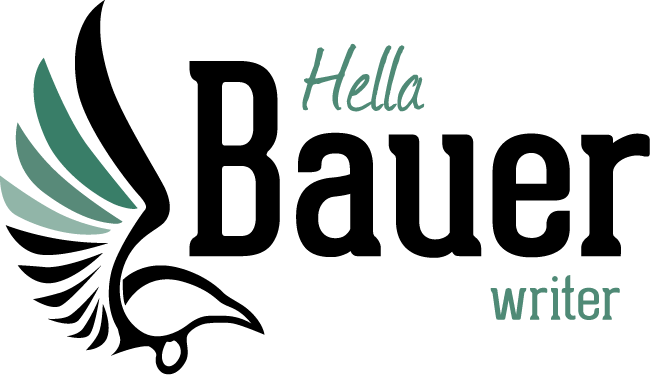‘The Divorce Papers' by Sarah Quigley
Sarah Quigley moved to Berlin 5 years after I left. Already an established writer she was awarded the Berlin residency - an apartment in central Berlin, plus enough money to live on for a year. What a gift indeed - I’ve been slightly jealous of every recipient of that particular residency.
Sarah wrote columns about life in Berlin for the NZ Listener then. I did not like those columns. I’m not sure if my dislike was because I missed Berlin, or because her Berlin was so different from mine (I was a highly stressed single mother and student; she a writer with flat & income without dependents).
My dislike of the columns led to stubborn refusal to read any of Sarah Quigley’s books, despite the fact that ’The Conductor’ won prizes and was on NZ’s bestseller list for an amazing 20 weeks. No. I don’t read Sarah Quigley.
Until a friend gave me her latest book. “You’ll like it”, she said. ’The divorce papers’, a book compiled from a series of award winning columns Sarah Quigley wrote while going through her divorce in Berlin.
My friend was right; I loved every page of that book, and its cover. I don’t know the Berlin Sarah inhabits - when I moved to Berlin the wall was seemingly impermeable. My time included the years when the wall was slowly dismantled, with all the chaos that ensued - the opening of the wall changed day-to-day realities in both East and West Berlin and affected every part of life; not always positively.
In Sarah’s Berlin the wall had been gone two decades. Yet, many of her descriptions still resonate, I recognise places, types of conversation, even the title page looks exactly like my friend’s kitchen in Berlin, that central heating, that double glazed window, the pot plants on the window sill - none of that can be mistaken for a NZ space.
The book is in 6 parts. It opens with her first panic attack - and the realisation that she needs to leave her marriage. It then veers back to its beginning, how she met her husband, the first red flag that she ignored, the life that is wonderful - unless it is not. Part one ends with ‘…I can remove myself from the cycle of fear, forgiveness and partial forgetting - and step into a whole new life…'
The realisation that, for her own well-being, she needs to leave is the first step. The steps that follow are challenging and painful, and Sarah takes us along. Part two takes us from the realisation through articulating the decision, to arguing about the flat and who remains, to her signing a temporary rental contract ‘until he finds somewhere else…'
Part three is the painful journey through a bloody awful time, when everything hurts and a way out of the pain seems impossible. It ends with the first glimmer that there might be an end to the pain in sight…’I feel as if I’ve been scarred and half-dead without realising it, and now, at last, blood is beginning to flow through my almost always anxious veins and my fearful, closed-off heart. … Stay strong. Stay patient. It’s all you can do right now. …'
While she’s not feeling half-dead any more, part 4 starts with ALONE. ALONE. ALONE. The omnipresence of the ALONE when life has been shared for many years. As the pain subsides reality sinks in. ALONE when wanting to go out to eat. When a challenge appears that used to be dealt with by the other. When at a party people ask ‘are you ALONE?’ When wanting a holiday, needing a holiday, and pondering - a holiday ALONE? It finishes with the end of denial. She gives up the hope of ever returning - to the marriage, to the apartment. The furniture and all her belongings are moved to her new abode, and her new reality of ALONE is fully accepted and inhabited.
In part five Sarah starts a new relationship - rather unemotionally, an entertained observer. Part six summarises the gifts of divorce. While numerous these gifts are hard won, now she consciously appreciates every one of them. ‘It’s taken me quite a while to appreciate aloneness without feeling acutely lonely. In fact, this is a big step, and when you finally reach that point - well, I can only recommend champagne.’
I loved the book. The language. The descriptions. Her realisations. She shares her pain of losing her friend, her flat, her day-to-day life, and while she leaves the marriage because she does not feel safe during his alcohol fuelled rages, the book is not about abuse. The book details how difficult it is, this transition into a life on your own. Which is why people remain in unhealthy and unsafe relationships, or move from one relationship to another to avoid that pain. Sarah fills the pages with details that portray a life that can only be led in Berlin; the streets, the flats, the parks, the clubs, the conversations. People might have names, or not; her landlord is Dr. Now, her new relationship is AdMan. While she does not give them names, she provides a range of small details that create people in their individuality. No cut-out characters. It’s easy to read, it’s honest, it’s heart achingly funny and utterly relatable. This book is for everybody who loves good writing, and especially for people who have gone through a painful separation and have learned to inhabit the pleasure of being alone before coupling up again. It’s a pleasure to read, even if you don’t know Berlin. Highly recommended.
